
Shoulder arthroscopy is a minimally invasive surgical procedure used to diagnose and treat problems inside the shoulder joint. Because it involves only small incisions, it is usually quicker to perform, causes less post-operative pain, and carries a lower risk of complications than open surgery.
If you’re living with a shoulder problem, shoulder arthroscopy could be an effective option for you. Here, we explain what shoulder arthroscopy involves, which conditions it can treat, and what to expect from your procedure with Ramsay Health Care.
Shoulder arthroscopy is a type of ‘keyhole’ surgery that allows an orthopaedic surgeon to see inside and treat the shoulder joint using very small incisions.
A thin tube-like instrument called an arthroscope, which has a light and camera at the tip, is inserted through one incision so the surgeon can view the inside of the joint on a screen. The surgeon may insert other small surgical instruments through additional small cuts to carry out repairs during the same procedure.
Most shoulder arthroscopies are carried out under general anaesthetic as a day case, meaning you can usually go home the same day.
You may be advised to have a shoulder arthroscopy if you have ongoing pain, stiffness, or a limited range of motion that hasn’t improved with non-surgical treatments, such as rest, physiotherapy, medications, or steroid injections. You’re more likely to be recommended for an arthroscopy of the shoulder if scans or examinations show damage inside the joint.
Common conditions treated with shoulder arthroscopy include:
It can also be used to treat shoulder infections, trapped nerve, fractures, cysts, or bony growths called osteophytes (bone spurs).
Before your shoulder arthroscopy, you’ll have a full consultation at Ramsay Health Care. Your orthopaedic surgeon will review your medical history, examine your shoulder, and may arrange imaging tests such as X-rays, ultrasound scans, or MRI scans, to help make an initial diagnosis of your shoulder issue and to confirm that a shoulder arthroscopy is the right option for you.
We’ll give you detailed, personalised instructions on how to prepare for the procedure, which usually include:
Read more about your stay with Ramsay Health Care.
An arthroscopy of the shoulder is usually carried out as a day case under general anaesthetic by a consultant orthopaedic surgeon. The operation typically takes up to an hour, depending on the type and amount of work required inside your shoulder joint.
Before your operation, your surgeon will talk you through exactly what will happen and answer any questions you may have.
Once you’re in surgery, fluid may be gently injected into your shoulder to expand the joint and make it easier to see. Your surgeon will then make small cuts in the skin around your shoulder joint, into which they’ll insert the arthroscope camera. Images from the camera will be shown to the surgeon on a monitor or an eyepiece, allowing them to investigate and identify any issues.
The surgeon may then insert miniature surgical instruments into your shoulder joint to repair or remove any damaged tissue, using the arthroscope camera to guide their work.
Once the procedure is complete and the tools have been removed, your incisions will be closed with stitches and covered with dressings and a protective bandage.
Most shoulder arthroscopies are performed as outpatient procedures, so you can usually go home the same day as your operation (we recommend you organise someone to drive you home).
After surgery, you’ll be taken to a room to rest and recover as the anaesthetic wears off.
You may feel some disorientation for up to 24 hours after your anaesthetic, and your pain and any swelling is likely to be at its most noticeable during this time. Pain relief medication, rest, and ice packs can help keep you comfortable.
Before you’re discharged, we’ll explain to you how to:
We’ll also arrange follow-up appointments to check your healing and progress. Our Ramsay physiotherapists will support you with a personalised rehabilitation plan to help you recover safely and effectively.
Recovery after shoulder arthroscopy varies from person to person, depending on your condition and the type of repair you’ve had. As a general guide, you can expect the following milestones:
Your shoulder will feel sore and swollen. Pain and discomfort are normal at this stage, but can be managed with prescribed medication, ice packs, and rest. Gentle hand, wrist, and elbow movements will be encouraged to keep your blood flowing and prevent stiffness. You’ll likely wear a sling to protect the shoulder joint and support early healing.
Pain and swelling should gradually reduce. You might still need your sling, but you’ll typically begin physiotherapy exercises aimed at improving your range of motion. You should feel more comfortable carrying out light daily tasks, such as eating with both hands and dressing. If you work a desk job, you’ll likely be able to return to work. However, lifting, reaching overhead, and strenuous activity should still be avoided.
You should notice significant improvements when moving your shoulder. Physiotherapy will focus on stretching and introducing strengthening exercises. You should feel confident with a range of everyday activities and light exercise, although your shoulder may still feel weak or stiff at times. Many patients are cleared to return to driving during this period.
Your strength and mobility will continue to improve as your physiotherapy programme becomes more intensive. You should be able to return to moderate activities during this period, like swimming, gentle gym exercises, or non-contact sports, depending on the original injury and the details of the surgery you had.
Full recovery can take up to a year. By six months, most people have regained good strength, flexibility, and function in the shoulder, and can return to contact sports or heavy lifting. Those with physically demanding jobs may be cleared to return to full activity at work. Some patients may still experience mild stiffness or weakness, particularly after more complex procedures such as rotator cuff repair.
If you’re experiencing ongoing shoulder problems, a shoulder arthroscopy could be a suitable and effective treatment option for you.
This minimally invasive procedure can identify or confirm a diagnosis by allowing a surgeon to see directly into your shoulder without requiring you to have open surgery. During the operation, your surgeon can use small tools to address the problem, including removing or repairing damaged tissue.
Because it’s less invasive than traditional open surgery, shoulder arthroscopy offers several benefits, including:
Like all operations, shoulder arthroscopy carries some risks, but serious complications are uncommon. Most people recover without any problems.
Possible post-operative complications can include:
Your surgeon will talk you through these risks before your operation and explain what can be done to minimise them.
We have a range of options available at Ramsay when it comes to covering the cost of your shoulder arthroscopy.
If you decide to pay for the procedure yourself, we offer an all-inclusive Total Care package, with a single one-off payment, at a pre-agreed price. This gives you direct access to all the treatment you need for complete reassurance. You can also choose to spread the cost of your shoulder arthroscopy with our available finance options.
A shoulder arthroscopy may also be covered by your medical insurance policy. We advise you to check directly with your insurance provider and get written confirmation before commencing treatment with us.
At Ramsay Health Care, you can expect patient-focused care delivered by expert healthcare professionals across our network of hospitals in the UK.
Your shoulder arthroscopy will be carried out by an experienced consultant orthopaedic surgeon who specialises in shoulder surgery. They will be supported by a skilled multidisciplinary team, including physiotherapists, to deliver expert care throughout your treatment and recovery.
Book an appointment today and discuss your shoulder arthroscopy with one of our specialists.
Shoulder arthroscopy recovery times will vary from person to person and depend on the type of procedure you’ve had. Most people can return to light daily activities within 2-6 weeks. Full recovery, especially after more complex procedures like rotator cuff repair, can take 3-6 months, with strength and mobility continuing to improve for up to a year.
Some discomfort is expected after any surgery, but because shoulder arthroscopy is minimally invasive, it typically causes much less pain than open shoulder surgery. Modern anaesthesia and pain control methods are used to help keep you comfortable during and after the procedure, and most patients find their pain eases quickly as they heal.
Prescription pain medication is often recommended for the first few days after your surgery. After that, most patients manage well with over-the-counter painkillers such as paracetamol or anti-inflammatories like ibuprofen (if suitable for you), alongside rest, icing, and gentle rehabilitation exercises.
How quickly you can return to your job will depend on what kind of work you do, what type of surgery you’ve had, and how well you recover from it. For desk-based jobs, you may be able to return after around three weeks. If your job is physically demanding or involves heavy lifting, you may need to stay off work for several months. Your Ramsay Health Care team will give you personalised advice about when it’s safe for you to return to work.
You should avoid heavy lifting, overhead activities, and any sudden shoulder movements in the early stages of recovery. Driving is not recommended until you can move your arm comfortably and are no longer taking strong painkillers. Your Ramsay physiotherapist will guide you on safe exercises and movements during recovery.
For many people, shoulder arthroscopy significantly reduces pain, improves function, and helps them return to daily activities and sports. However, success depends on the underlying condition, your general health, and how well you follow your rehabilitation plan. Your Ramsay consultant will help you decide if it’s right for you.
A shoulder arthroscopy usually takes between 30 minutes and one hour, depending on the complexity of the procedure and if any additional repairs are needed.
An arthroscopy can’t cure arthritis, but the procedure can often relieve the symptoms of arthritis by smoothing rough cartilage, removing loose fragments, and washing out the joint. However, with advanced arthritis, a shoulder replacement is often a more effective option.
Most patients can go home the same day as their operation. Occasionally, an overnight stay is needed if the procedure is more complex or if you have other health conditions.
The cost of shoulder arthroscopy surgery will vary from patient to patient, depending on the details of the procedure. At Ramsay Health Care, we offer competitive prices for orthopaedic surgery, with self-funding options and payment plans available. Contact us for a personalised cost estimate.
Typically, yes, but these scars are usually very small (around 5–10mm each). The scars are minimal compared to open surgery and typically fade over time until they become barely noticeable.

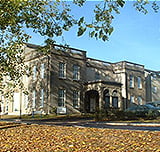
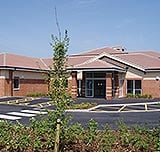
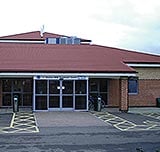
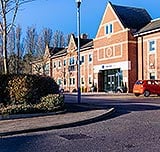
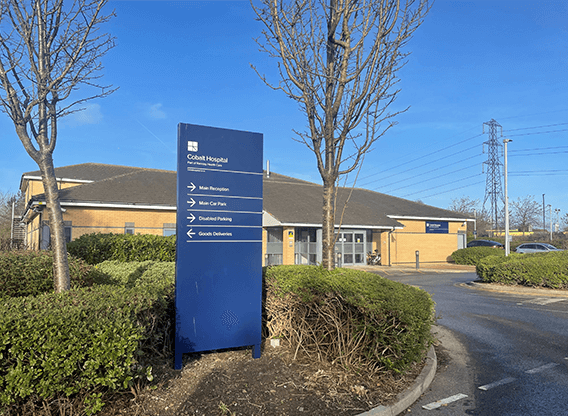


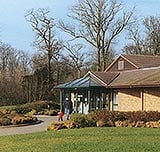
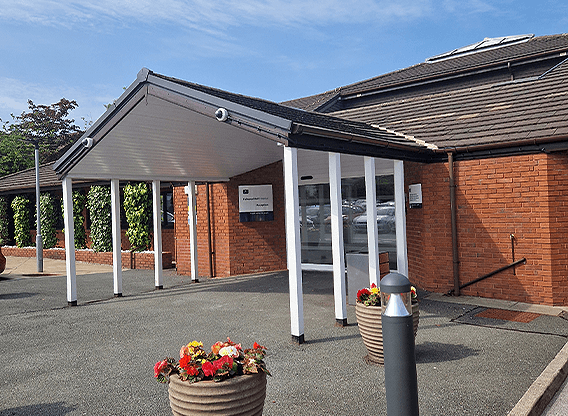
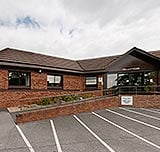

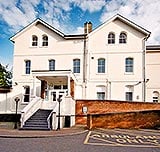
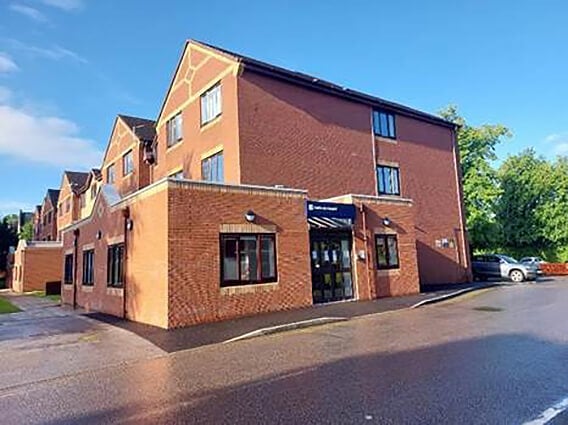

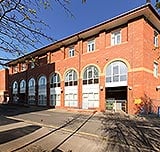
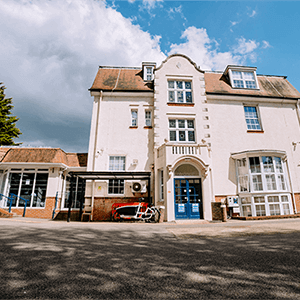
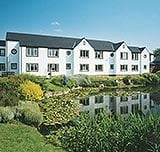



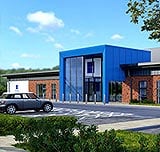
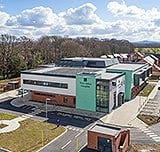
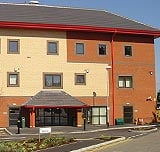
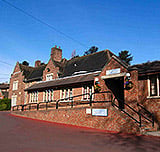
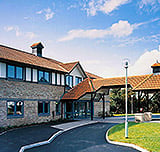

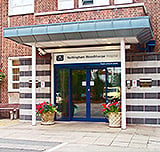
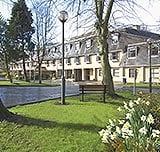
West Midlands Hospital was delighted to welcome Alex Ballinger, MP for Halesowen, for a return visit to the hospital. As the only hospital in the Halesowen constituency, West Midlands plays a vital role in supporting both the NHS and the local community by meeting local healthcare needs.
Ramsay Health Care UK is delighted to announce that all 25 hospitals providing endoscopy services have achieved the Joint Advisory Group (JAG) accreditation, and are the only independent provider to attain this.
Mayor of Boston Borough, Barrie Pierpoint, opens new state-of-the-art theatre and unveils refurbishment of reception and additional consulting room and recovery area at Boston West Hospital, Part of Ramsay Health Care UK.
The information, including but not limited to, text, graphics, images and other material, contained on this website is for educational purposes only and not intended to be a substitute for medical advice, diagnosis or treatment. Always seek the advice of your physician or other qualified health care provider with any questions you may have regarding a medical condition or treatment.
No warranty or guarantee is made that the information contained on this website is complete or accurate in every respect. The testimonials, statements, and opinions presented on our website are applicable to the individuals depicted. Results will vary and may not be representative of the experience of others. Prior patient results are only provided as examples of what may be achievable. Individual results will vary and no guarantee is stated or implied by any photo use or any statement on this website.
Ramsay is a trusted provider of plastic or reconstructive surgery treatments as a part of our wrap-around holistic patient care. Our personal, friendly and professional team are here to support you throughout to ensure the best possible care. All procedures we perform are clinically justified.
*Acceptance is subject to status. Terms and conditions apply. Ramsay Health Care UK Operations Limited is authorised and regulated by the Financial Conduct authority under FRN 702886. Ramsay Healthcare UK Operations is acting as a credit broker to Chrysalis Finance Limited.
Ramsay Health Care UK is not currently recruiting for any roles based outside of England. If you are interested in applying for a role with Ramsay Health Care UK, please note that all available positions are advertised exclusively on our official website: https://www.ramsayhealth.co.uk/careers. Be cautious of individuals or organisations that approach you directly for remotely-based roles. Always verify the authenticity of the job offer and be careful with whom you share your personal information. For more information and advice on employment fraud, please visit: https://www.ramsayhealth.co.uk/careers/recruitment-fraud